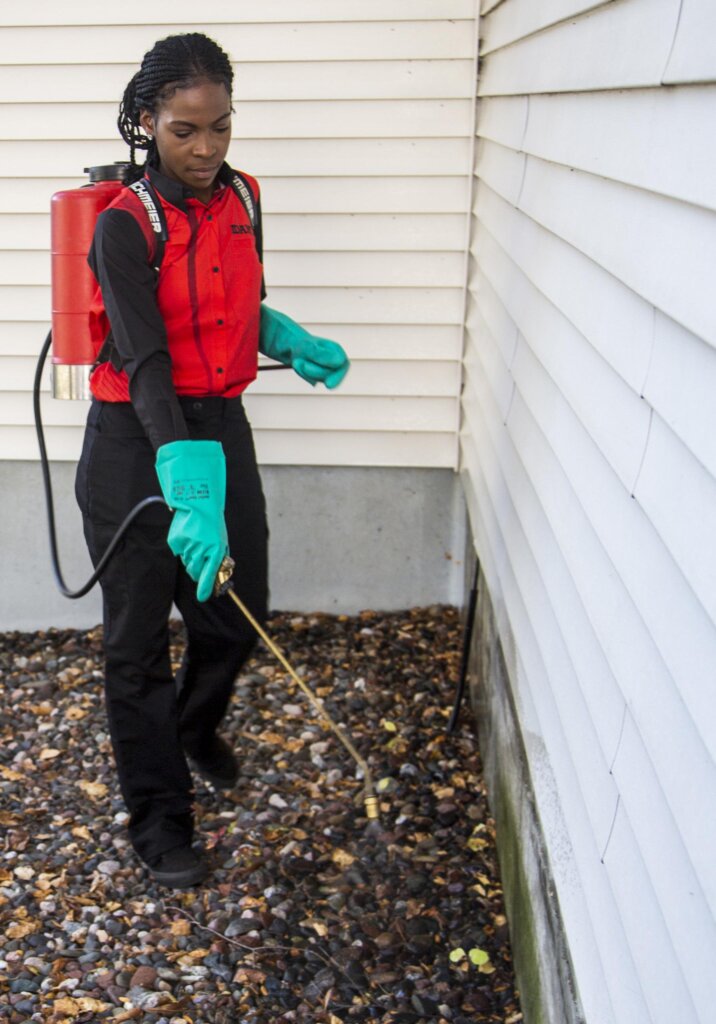Effective Pest Control in Port Charlotte for long-term pest prevention.
Checking Out Cutting-edge Strategies and Products for Effective Parasite Control
The landscape of insect control is evolving, noted by the introduction of cutting-edge techniques and products developed to enhance effectiveness and sustainability. From wise catches furnished with innovative monitoring systems to organic techniques that utilize all-natural killers, these advancements offer a paradigm shift in just how we approach pest monitoring.
Smart Traps and Checking Equipments
Exactly how can modern-day technology improve parasite administration? One significant development is the advancement of smart catches and keeping an eye on systems, which supply real-time data and analytics for effective pest control. These systems utilize sensors and wireless modern technology to detect bug task, signaling building managers and bug control experts to infestations prior to they rise.
Smart traps are furnished with functions such as lure terminals that draw in insects and record them successfully. These catches can be monitored remotely, enabling for prompt interventions and decreasing the requirement for extensive chemical applications. The integration of equipment learning formulas makes it possible for these systems to set apart between target pests and non-target types, improving the accuracy of pest control procedures.
Furthermore, the data collected from wise catches can be analyzed to identify patterns in pest actions and environmental elements adding to problems (Pest Control in Port Charlotte). This information is invaluable for developing targeted pest monitoring techniques customized to certain settings. By embracing wise catches and monitoring systems, bug control experts can boost their operational performance and minimize the environmental effect of pest administration, inevitably bring about much safer and more lasting methods in the market
Organic Insect Control Approaches
Utilizing all-natural predators and parasites, organic pest control methods provide an eco-friendly option to chemical treatments. This strategy involves the intro or enhancement of certain microorganisms that can normally control pest populaces, thus decreasing reliance on artificial pesticides. Typical instances include making use of ladybugs to regulate aphid problems and parasitical wasps to target caterpillars.

Biological control can be categorized into 3 major strategies: classical, augmentative, and conservation. Classical biological control includes importing all-natural enemies from the pest's native environment, while augmentative control includes enhancing the population of existing all-natural enemies with launches. Preservation methods concentrate on developing conditions that sustain these beneficial organisms in the environment.
The performance of biological insect control depends upon recognizing the complex communications within ecological communities. It usually needs a comprehensive assessment of insect dynamics and the life process of both the bugs and their all-natural opponents. While biological techniques may not offer immediate results like chemical alternatives, they add to long-term parasite management and environment health. As awareness of environmental concerns expands, biological pest control approaches are increasingly acknowledged for their sustainable role in integrated pest monitoring programs.
Eco-Friendly Chemical Alternatives
Environmentally friendly chemical options provide a feasible service for pest management that reduces environmental impact while properly controlling bug populaces. These choices are originated from natural resources and are carefully formulated to target details bugs without harming helpful organisms, making them a vital element of lasting insect control approaches.
Among the most reliable eco-friendly alternatives are plant-based pesticides, such as neem oil and pyrethrin, which are derived from the seeds and flowers of various plants. These materials interfere with the life process of parasites, reducing their populations without the poisonous effects associated with conventional pesticides - Pest Control in Port Charlotte. Additionally, vital oils like pepper mint and clove oil exhibit repellent residential or commercial properties, better improving their energy in parasite monitoring

Moreover, green chemical alternatives usually damage down quicker in the environment, minimizing the risk of soil and water contamination. This characteristic aligns with the enhancing customer need for sustainable methods in agriculture and metropolitan insect control. As study additional hints remains to breakthrough, the development of ingenious green formulas will better boost efficacy and broaden application areas, enabling pest management experts to take on greener, extra accountable techniques in their practices while securing human health and wellness and the environment.
Pheromone Interruption Strategies
An additional cutting-edge approach in sustainable insect administration is making use of pheromone interruption methods. These techniques manipulate the all-natural chemical signals, or pheromones, that pests utilize for communication, particularly in mating actions. By interfering with these signals, pest populations can be properly handled without considering damaging chemicals.
Pheromone catches are commonly employed in this strategy. These catches make use of synthetic versions of insect scents to lure male insects, thereby reducing their capacity to find women and replicate. Over time, this can cause a considerable decline in parasite populaces. Additionally, the launch of repellent scents can develop confusion among bugs, better hindering their mating procedures - Pest Control in Port Charlotte.

Integrated Bug Monitoring Approaches
Efficient pest control often requires a detailed method, and Integrated Pest Administration (IPM) strategies provide a structure for attaining this objective. IPM integrates various management methods to reduce bug populaces while decreasing dependence on chemical pesticides. This multifaceted technique begins with detailed tracking and identification of insects, allowing for targeted treatments based upon particular internet insect pressures.
Cultural methods, such as plant turning and sanitation, play an essential duty in learn this here now stopping parasite establishment. Biological controls, consisting of natural killers and parasitoids, are utilized to maintain pest populaces at workable degrees. When essential, discerning chemical treatments are applied, emphasizing lower poisoning to non-target species and the setting.
By employing this all natural strategy, IPM not only boosts insect control performance but likewise adds to lasting eco-friendly balance. Ultimately, Integrated Insect Monitoring stands for a forward-thinking service that straightens agricultural performance with environmental stewardship, making it crucial in contemporary bug control approaches.

Conclusion
In conclusion, the combination of cutting-edge techniques and items for reliable insect control represents a significant improvement in lasting bug monitoring. Smart catches and checking systems, organic pest control approaches, eco-friendly chemical options, and scent disruption strategies jointly improve the performance of bug management methods.